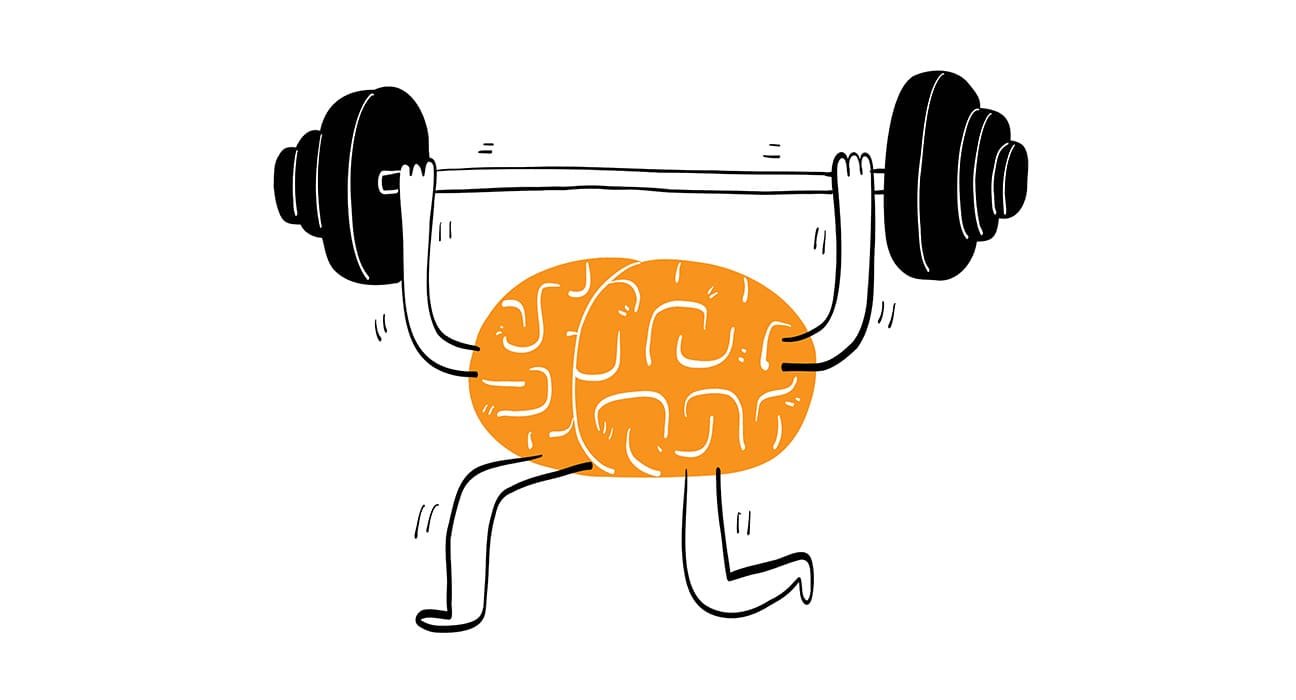Similar to machines, our brains too start deteriorating when they aren’t maintained and operated. Any equipment that has started getting older will struggle to function. Similarly, an elderly person’s brain which has started getting weaker will start suffering from frequent headaches and fogging of memories, which can lead eventually to dementia. To reduce the impact of cognitive decline, we must practice certain brain exercises.
Regardless of your age, there are numerous ways to maintain the health of your brain and sharpen your cognitive abilities, Engaging in specific cognitive exercises to enhance memory, focus, and concentration can help you do everyday tasks more quickly and easily while maintaining mental acuity as you age.
You can now maintain brain function, and keep your memory intact by engaging in brain training exercises, just like certain physical exercises for a healthy lifestyle, and for doing so you don’t need to spend on any gym membership or classes, these exercises can be done anywhere anytime. There are numerous computer programmes or games like Lumosity and Confit, that claim to improve cognitive function.

However, no conclusive study has demonstrated that these apps have positive effects on older persons’ nervous systems. Therefore Instead of mobile games, including small activities in daily life is recommended by professionals.
Brain exercises should be engaging and can be simple like Driving home from a different route or brushing one’s teeth with a non-dominant hand. The brain works using associations, so it’s better to engage various sense organs while doing a brain exercise.
Read More: 9 Foods that are Great for your Brain
Brain Exercises That Are Good for Memory
There is quite a lot of literature that suggests that brain exercises are beneficial for memory, some of these exercises are –
- Recalling: Learning certain words, or list of a words example list of fruit, flowers etc and recalling it an hour later. You can do this daily and slowly increase its difficulty with each passing day, this exercise is guaranteed to increase you’re your memory, if you do not want to make and learn a list you can try to recall your day in detail. Burack and, Lachman did a study to examine the effects of list-making on recalling, this helped older adults increase their recall ability.
- Maths games: Sudoku games or daily math games will make your brain faster and Improve your memory. The act of solving arithmetic problems improves cognitive abilities. Walking and doing math simultaneously is said to increase its difficulty and athletic appeal.
- Learning Music: Learning musical instruments engages multiple cognitive processes simultaneously, such as auditory stimulation and tactile sensation. As we learn musical notes, akin to mastering a language, our brains multitask, fostering activity and agility. A study conducted by National Geographic showcased that people between the ages of 65 and 85, who received piano lessons for 6 months, showed an improvement in their memory, speed ( of mental activity) and verbal fluency.
- Making maps from memory: Try making a map of the area, you recently visited Whenever you take a new route, draw a map, and recall the various objects you see, and shops you come across. With every visit to a new place, repeat this activity. This activity will help to improve your memory and help you remember routes.
- Playing cards: We all have played card games at least once in our lifetime, but did you know Playing Cards leads to better performance in episodic memory, verbal learning and memory, and speed of the brain?. Research suggests that participating in cognitive activities, specifically those related to game playing, could potentially help prevent Alzheimer’s by preserving our brain structure and cognitive functions.
- Exercise: physical exercise is not just useful for maintaining our body but also our memory. Exercise feeds our brain with oxygenated blood, which improves functions, reduces stress levels by the release of oxytocin, and therefore improves our cognitive function. There have been many reports on this phenomenon, where elderly people have shown improvement in their cognitive abilities, and memory with certain exercises. Taking brisk walks for 10 minutes daily, or yoga and tai chi are certain activities you can incorporate into your routine.
- Learning a new language: When we remember words over a long period, regions of the brain like the left hippocampus and parahippocampal regions are active. When we recall words temporarily, other areas, like the precentral structures, come into play. Therefore, New languages can influence how the brain handles memory tasks, memory tasks engage several brain areas, each playing a specific role in remembering words. Even with bilingualism our brain is constantly learning and juggling two separate language systems, therefore increasing the process of associations between words faster.
- Puzzles: Solving puzzles like crosswords and Sudoku is an enjoyable method to enhance memory and cognitive skills. Making it a morning ritual while perusing the newspaper can sharpen your mental abilities and memory while adding a touch of amusement to your routine.
- Sleeping: sleeping is not an active brain exercise, but is crucial for both the brain and the body. Sleeping is a very important activity for several brain functions, including how nerve cells communicate with each other. Recent findings suggest that sleep is an important function in balancing your body, and its hormones. When we are sleeping are body processes all the information we perceive in the day, therefore adults need about 7 or 9 hours of sleep daily, but this is not followed religiously due to the current lifestyle. Sleeping is beneficial for:- Helps with memory recall, reduces anxiety or stress, and Helps to regulate hormones.
Take Away
Engaging in brain exercises like games and puzzles can benefit brain health and cognition. Research shows they may slow brain aging and help with Alzheimer’s and dementia symptoms. These activities involve different brain regions and senses. Doing them regularly in your daily routine may help prevent memory loss later in life. But remember, it’s not a quick fix. Consistent practice over time is key. Starting now can help you manage memory loss better as you age.
Read More Articles from Psychologs
- Top 10 Books to Read on Productivity and Time Management in 2024
- How Meditation Changes Your Brain
- Memory 101: Understanding the Basics of Working Memory
- Sleep breathing affects memory processing: Research
References +
- Neuroimage. Author manuscript; available in PMC 2018 Mar 12.Published in final edited form as: Neuroimage. 2018 Feb 15; 167: 143–150. Published online 2017 Nov 22. doi: 10.1016/j.neuroimage.2017.11.038 PMCID: PMC5845836NIHMSID: NIHMS922586PMID: 29175203
- Devanand D. P., Goldberg T. E., Qian M., Rushia S. N., Sneed J. R., Andrews H. F., Nino I., Phillips J., Pence S. T., Linares A. R., Hellegers C. A., Michael A. M., Kerner N. A., Petrella J. R., Doraiswamy P. M. (2022). Computerized games versus crossword training in mild cognitive impairment. NEJM Evidence, 1(12). https://doi.org/10.1056/evidoa2200121
- Burack OR, Lachman ME. The effects of list-making on recall in young and elderly adults. J Gerontol B Psychol Sci Soc Sci. 1996 Jul;51(4):P226-33. doi: 10.1093/geronb/51b.4.p226. PMID: 8673643.
- Gerontologist. 2014 Oct; 54(5): 741–753. Published online 2013 Dec 11. doi: 10.1093/geront/gnt138 PMCID: PMC4229893PMID: 24336875
- Saridakis I, Doukakis S. Cognitive Enhancement Through Mathematical Problem Solving. Adv Exp Med Biol. 2021;1338:209-216. doi: 10.1007/978-3-030-78775-2_25. PMID: 34973027.













Leave feedback about this